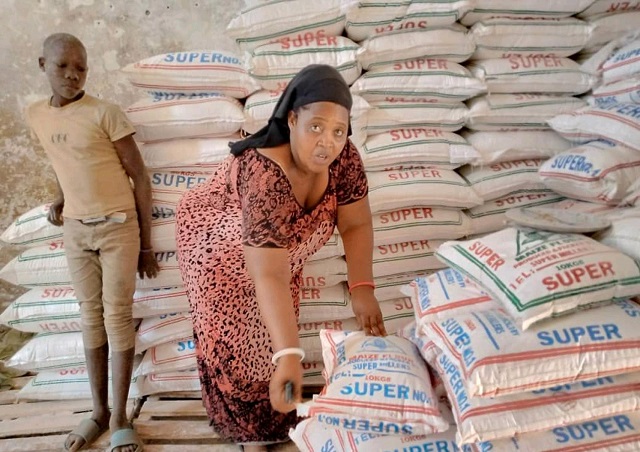
Jinja, Uganda | THE INDEPENDENT | Dealers in maize and flour in Jinja are currently stuck with their produce following tight clearance restrictions instituted on produce exports to Kenya.
Early this month, Kenya banned the export of maize imports from Uganda over allegations that it contained high levels of mycotoxins in the grain that were consistently beyond safety levels. The ban was communicated by Kenya’s Agriculture and Food Authority to the Commissioner of Customs at Kenya Revenue Authority.
Aflatoxins are produced by certain fungi that are found on agricultural crops such as maize (corn), peanuts, cottonseed, and tree nuts, and according to World Health Organisation, can contaminate food crops and pose a serious health threat to humans and livestock. WHO adds that aflatoxins also pose a significant economic burden, causing an estimated 25 percent or more of the world’s food crops to be destroyed annually.
The ban was later lifted but with strict conditions on exporters as Kenyan authorities sought to curb shipping in of the cancer-causing aflatoxins. The country’s agriculture ministry said that all maize importers would be required to be registered, and possess a certificate of conformity on aflatoxin levels for every consignment. The traders are also expected to issue details of their warehouses clearly explaining the mode of storage and drying.
Agriculture Chief Administrative Secretary Lawrence Angolo said that the move is aimed at addressing the safety of Kenyan consumers of the produce. He said that the details on warehouses and storage facilities would help in ensuring that the maize supplied to Kenya adhered to all standard procedure on food handling and that it was not dried on the tarmac.
But traders under the umbrella of Kaziminji maize dealers and produce traders association, say that implementing such restrictions in a short time is a disservice for those operating in the absence of clear policies governing their sector. The dealers argue that most of them are uneducated and without sensitization on how to fulfill such processes. They add that many of them are left without a choice but to lock their products in stores.
Asha Mbabazi, a dealer in maize flour says that unlike before when their business associates within Kenya were mandated with ensuring standards of their produce, they are now required to acquire certified stamps from the Uganda National Bureau of Standards-UNBS before accessing the border points which she says is slowing business.
Isa Kitimbo, a maize dealer says that such restrictions are a wake-up call for all responsible government agencies to revive the cooperative unions as individual farmers lack the capacity to lobby for both markets and quality at the same time. Kitimbo argues that processes aimed at ensuring quality are costly and frustrating to individual farmers.
However, the cooperatives state minster Fredrick Ngobi told journalists that they have revived Busoga cooperative union and stakeholders within the agriculture sector have been mobilized to embrace the union’s free training in post-harvest handling and storage to promote product quality,both within the local and regional markets.
*****
URN
 The Independent Uganda: You get the Truth we Pay the Price
The Independent Uganda: You get the Truth we Pay the Price


